When Did the Mandela Effect Peak? A Data-Driven Look at Mass Memory Shifts
The Mandela Effect is one of the internet’s most intriguing mysteries—moments where large groups of people collectively remember something differently than how it appears in reality. But when do these memory shifts gain traction?
Using historical search data, I analyzed when each major Mandela Effect hit its peak popularity, filtering out minor trends to focus only on significant spikes. The results provide a fascinating look at when certain collective misremembering captivated the internet.
Dataset
The dataset was compiled using Keywords Everywhere, a third-party keyword research tool that provides raw search volume data instead of the normalized, relative trends that Google Search Trends offers. While Google Trends is useful for identifying interest fluctuations, it does not provide actual search volume numbers—it scales data between 0 and 100, making it difficult to compare absolute interest levels across different time periods or keywords. This normalization obscures key details, especially for topics like the Mandela Effect, where smaller, yet significant, spikes might be hidden. To overcome this limitation, Keywords Everywhere was used, allowing for a more precise measurement of when each Mandela Effect phrase hit its true peak popularity based on real search volume rather than Google’s scaled representation. This approach ensures a more accurate timeline of when collective memory shifts went viral, rather than relying on an abstracted trend score.
If you would like to take a look at the dataset you can download it here.
Here is a list of the top Mandela Effects used in the dataset:
- Berenstain Bears vs. Berenstein Bears (Spelling confusion)
- C-3PO’s Silver Leg (Many remember him being all gold)
- Can You See the Great Wall of China from Space?
- Charlie Brown Thanksgiving Shoes (Did he wear shoes?)
- Cinderella Castle or Sleeping Beauty Castle (Disney confusion)
- Fruit of the Loom’s Cornucopia (Never existed)
- Darth Vader’s Chest Plate Color (Did it change?)
- Did Cinderella Live in a Castle or a House?
- Febreze vs. Febreeze (Spelling confusion)
- “Life is Like a Box of Chocolates” (Did Forrest Gump actually say this?)
- Did Nelson Mandela Die in Prison? (Namesake of the effect)
- Monopoly Man’s Monocle (He never had one)
- Did Tom Cruise Wear Sunglasses in Risky Business?
- Does Curious George Have a Tail? (He never did)
- Does Mickey Mouse Wear Suspenders? (Many recall them, but they never existed)
- The Ford Logo: Does It Have a Loop?
- ET: “Phone Home” vs. “Home Phone”
- Flintstones vs. Flinstones (Spelling confusion)
- Great Wall of China Visibility from Space
- Henry VIII Holding a Turkey Leg (Did this painting exist?)
- “Houston, We Have a Problem” (Misquoted movie line)
- Is Chartreuse Green or Pink? (Color confusion)
- Jif vs. Jiffy Peanut Butter (Brand name misremembering)
- Sex and the City vs. Sex in the City (Title confusion)
- Smokey the Bear vs. Smokey Bear (Official name confusion)
- New Zealand’s Location on the Map (Is it north or south of Australia?)
- South America’s Position (Has it shifted east?)
- Monopoly Man: Is He Based on JP Morgan?
- The Thinker Statue’s Pose (Has it changed?)
- King Tut’s Headpiece: Snake and Bird (Did it always have both?)
- KitKat Logo: Dash or No Dash?
- Looney Tunes vs. Looney Toons (Spelling confusion)
- “Luke, I Am Your Father” (Misquoted Star Wars line)
- Mirror Mirror on the Wall (Actually “Magic Mirror”)
- Moonraker: Did Dolly Have Braces?
- Mr. Rogers’ Theme Song (“It’s a beautiful day in this neighborhood” vs. “the neighborhood”)
- Neil Armstrong’s Death Date (Many remember it wrong)
- Pikachu’s Tail (Did it have a black tip?)
- “Run, You Fools” vs. “Fly, You Fools” (Gandalf’s quote)
- Sally Field’s Oscar Speech (“You like me, you really like me!”)
- Sinbad’s “Shazaam” Genie Movie (Never existed, but many recall it)
- Skechers vs. Sketchers (Spelling confusion)
- Tank Man from Tiananmen Square (Did the video change?)
- Tinkerbell’s Disney Intro (Was it real?)
- We Are the Champions (Missing “of the world” lyric at the end)
- Where Is Sri Lanka on the Map? (Many recall it in a different spot)
🔍 Analysis
The Biggest Mandela Effects by Year
Instead of a gradual rise in interest, my analysis shows that mandela effects emerge in waves—certain years have massive spikes where particular effects dominate search trends.
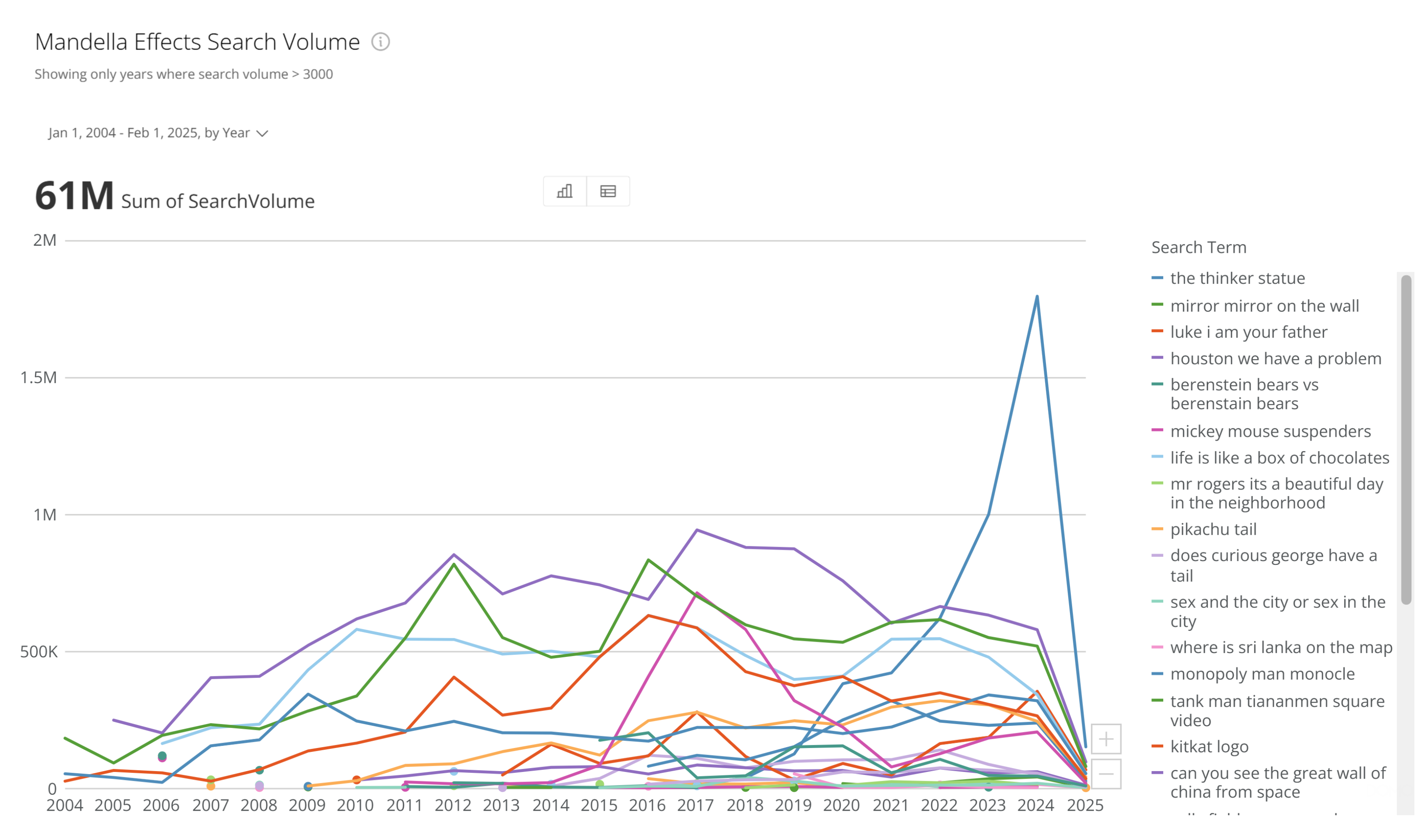

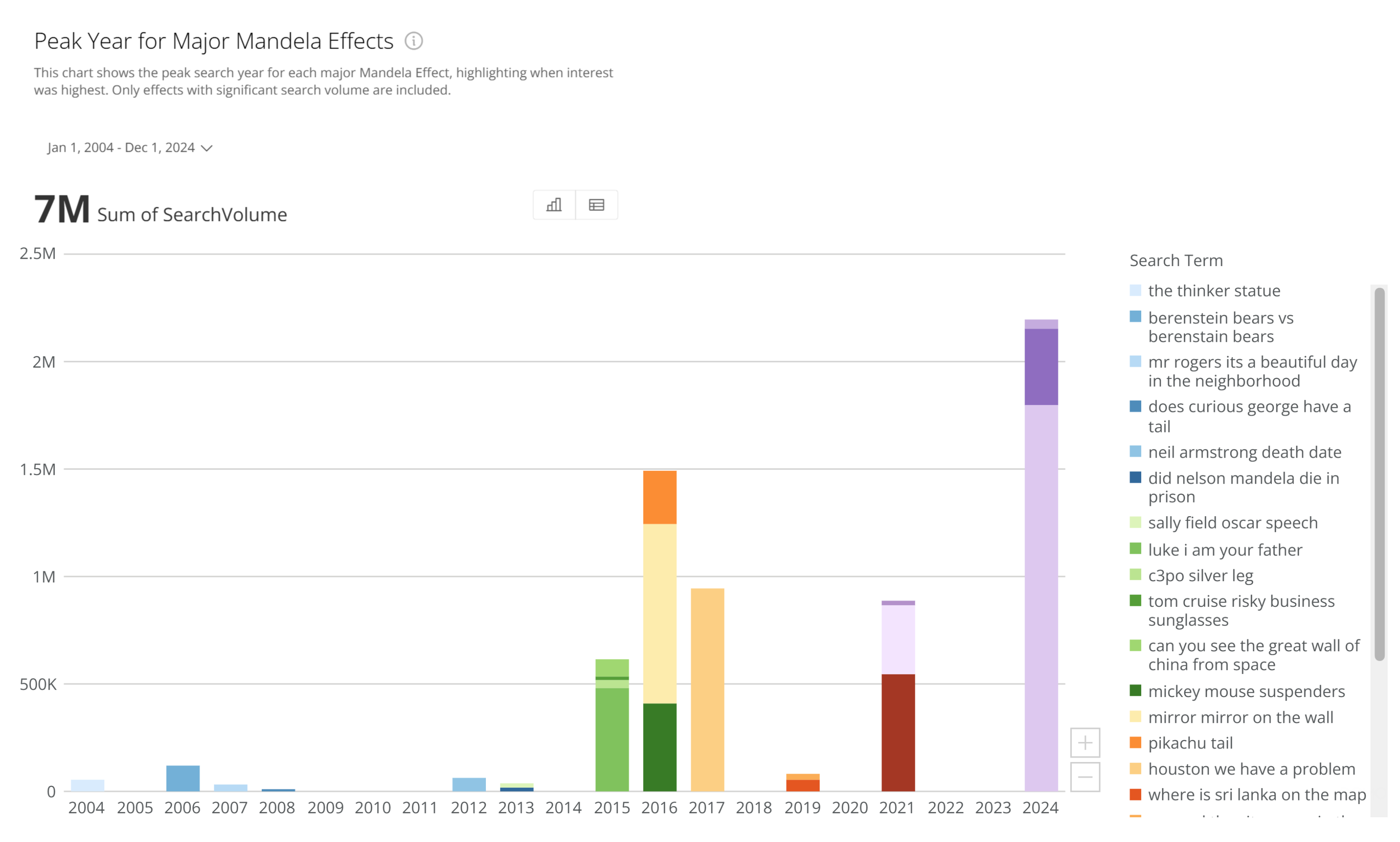
Key Findings:
Certain years saw major surges—notably 2016, 2017, and 2021, when multiple effects peaked at once.
Media and social platforms likely play a role, triggering waves of interest in specific effects.
Not all Mandela Effects persist—some explode in popularity for a short time before fading.
🚀What Causes These Spikes?
If the Mandela Effect were purely a case of random misremembering, we’d expect a gradual rise over time. Instead, the data suggests that these shifts in memory perception happen suddenly and collectively. Some possible triggers include:
- Social Media & Viral Content – YouTube videos, Reddit discussions, and TikTok trends can rapidly amplify certain Mandela Effects.
- Movies & Pop Culture References – Films, interviews, and even memes can introduce false memories or reinforce existing ones.
- Algorithmic Reinforcement – Once people start searching for a Mandela Effect, platforms like Google and YouTube recommend related content, fueling a self-reinforcing loop.
If you watch Youtube video on a mandela effect and it doesn’t resonate with you, you are not likely to search for it. Note that none of the search phrases include the phrase “mandela effect”. My goal was to capture the actual misrememberings or the phrases people recall incorrectly rather than searches influenced by the term “mandela effect” as a concept. This approach helps isolate genuine instances of collective memory shifts rather than people simply looking up the phenomenon. It’s worth noting that there are still valid but less common reasons someone might search for a phrase.
- Information Seeking – out of curiosity
- Peer Influence – stay in the loop, fact check
- Algorithmic Amplification – social platforms suggest related queries
I particularly find these spikes interesting:
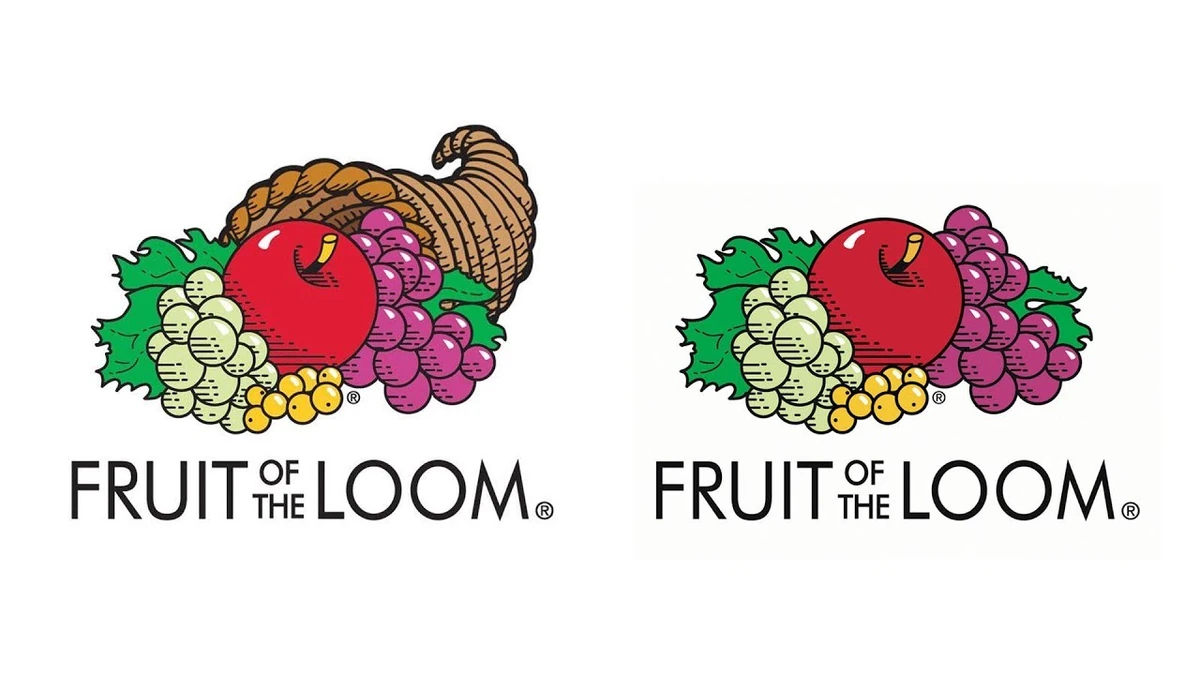
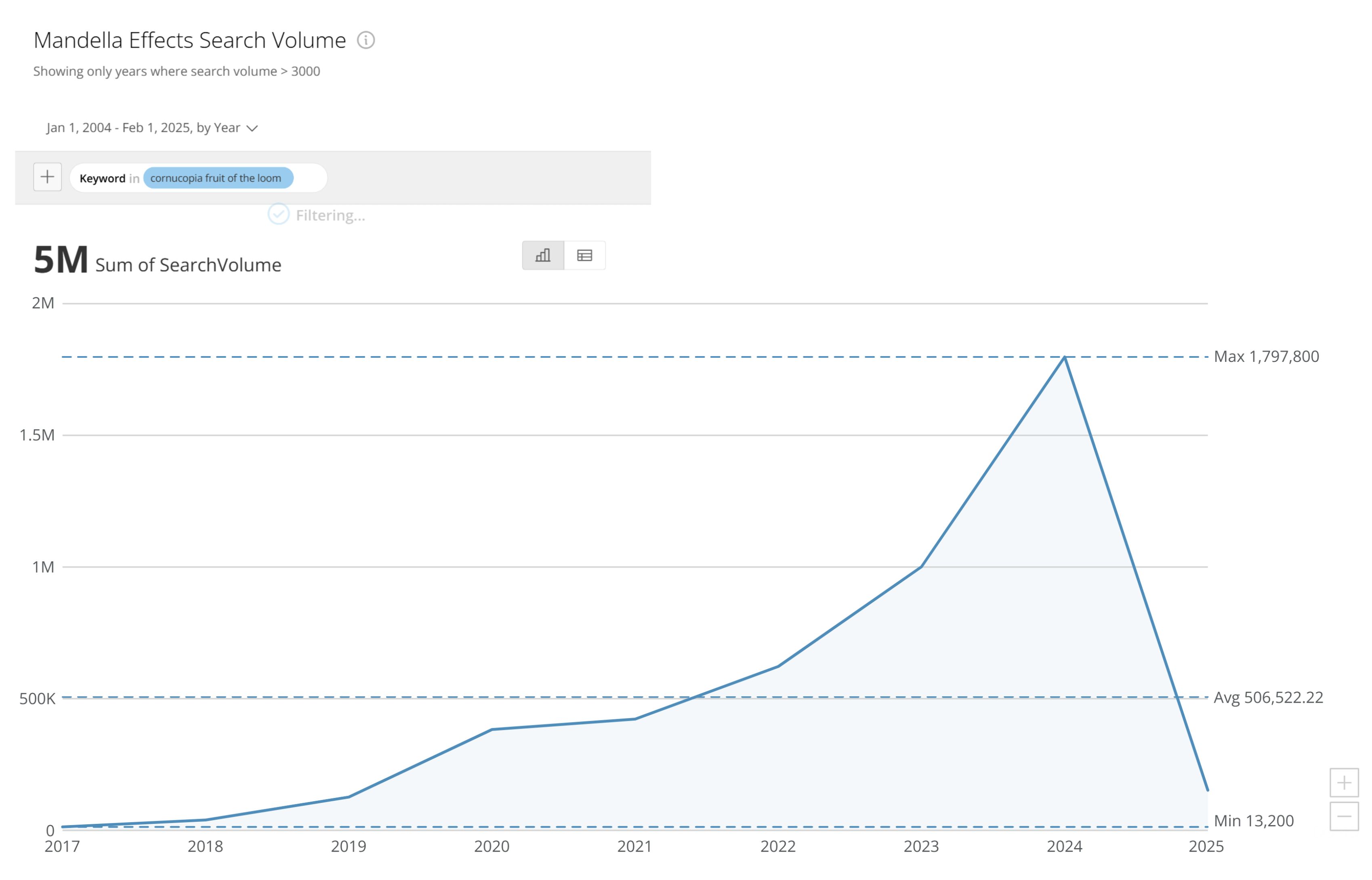
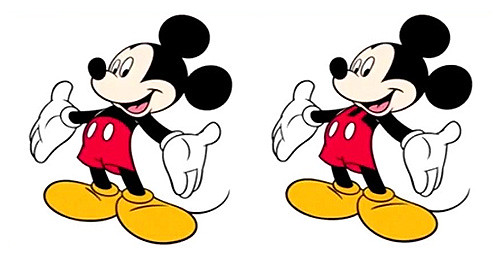
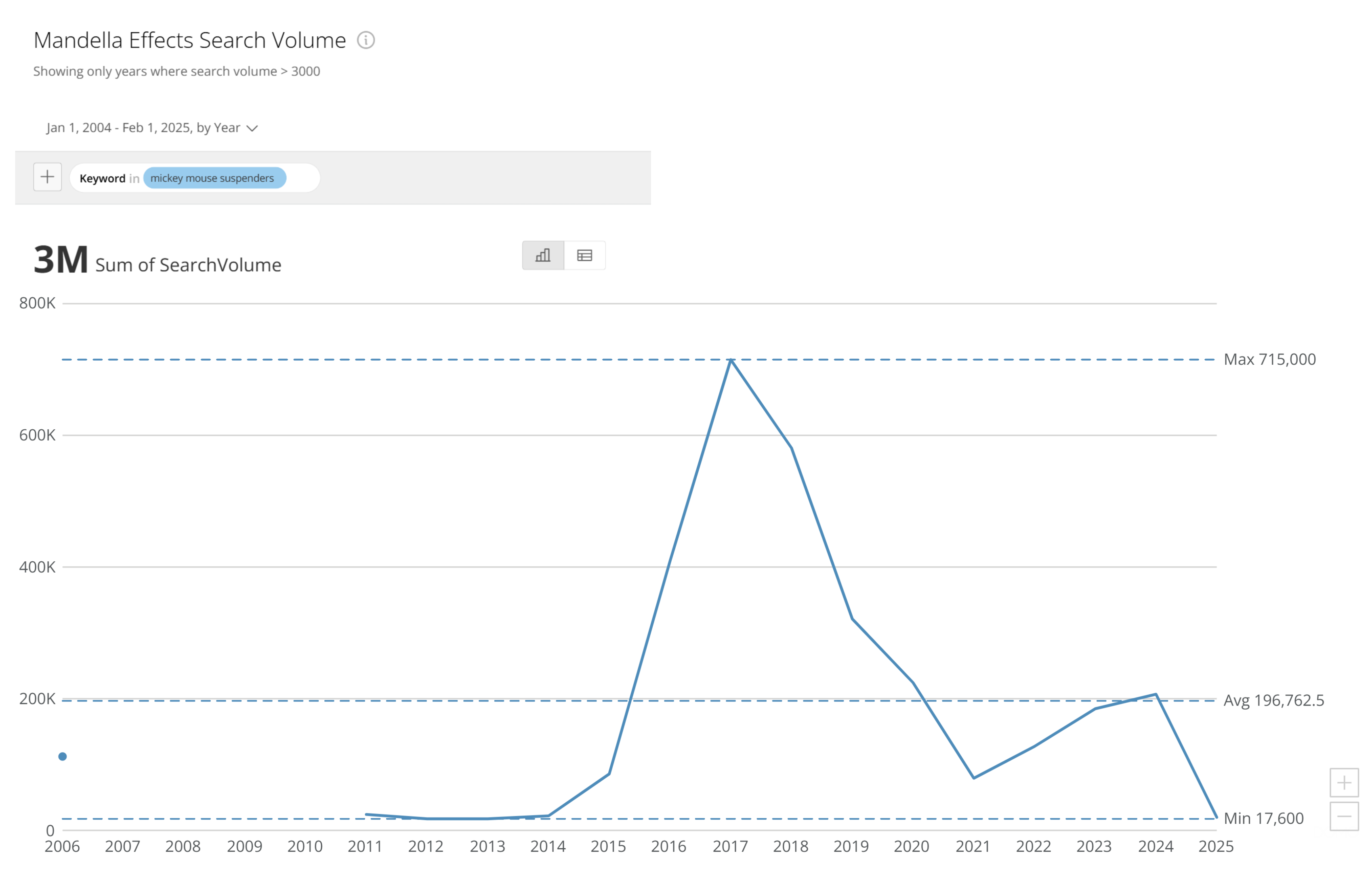
Could it be the sudden drop on these are due to top search results like this one “debunking” the mandela effect?
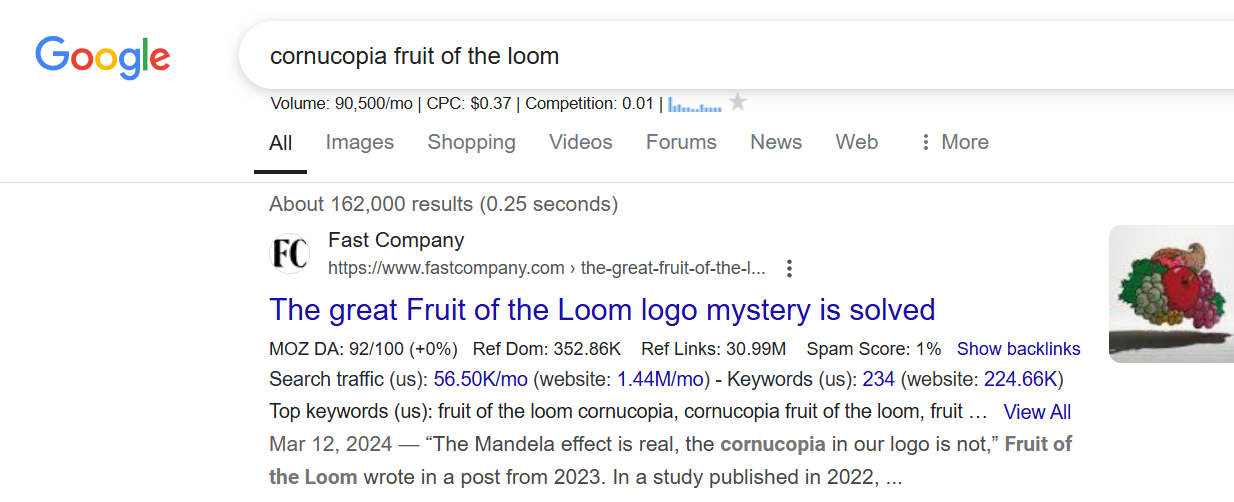
The article references a snopes debunk claiming it’s all in your head. Does the data support that?
I do wonder why would a company file a trademark searching for related trademarks with the following keywords:
“Baskets, bowls, and other containers of fruits, including cornucopia (horn of plenty).”
if there is no basket, bowl, container, or cornucopia in their logo.

Are we looking at random misrememberings or a collective spike in memory change? What do you think? Thanks for visiting.